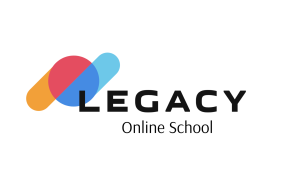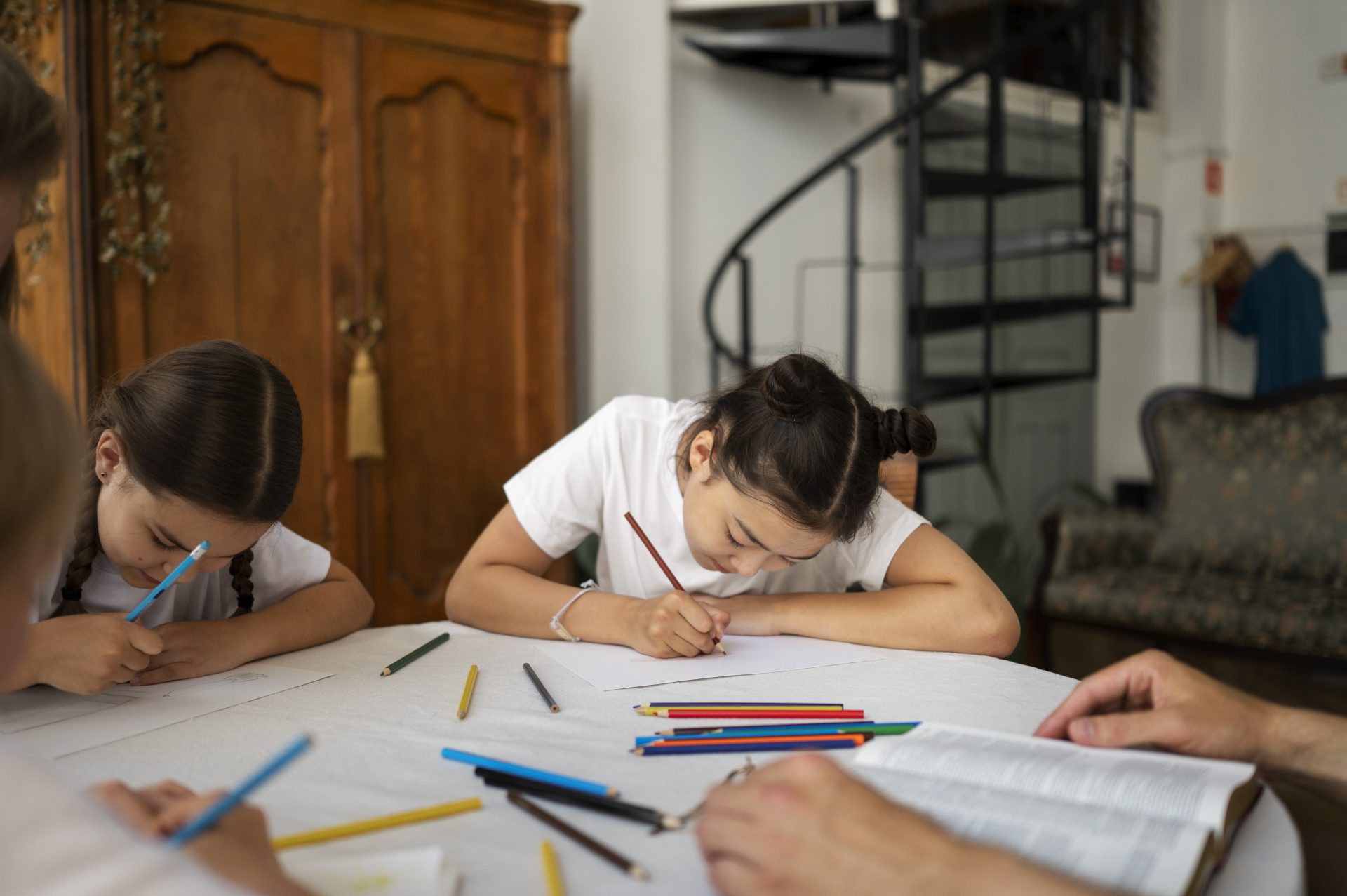Contents
- 1 What Are the Requirements for Homeschooling in New York State?
- 2 How to Start Homeschooling in New York?
- 3 What Are the Graduation Requirements for Homeschooling in New York?
- 4 What Resources Are Available for New York Homeschoolers?
- 5 Legacy Online School
- 6 What Are the Benefits of Homeschooling in New York?
Over 50,000 students were being homeschooled in New York State in the 2022-2023 school year, according to research by the Empire Center. The number of homeschoolers continues to grow today due to the advantages this type of education brings.

Homeschooling is about saying goodbye to traditional schooling, where students need to set aside other tasks and attend school in person. This type of education allows students to learn from home.
What Are the Requirements for Homeschooling in New York State?
Let’s look at the specifics of legal requirements in New York and the support available to homeschoolers.

Understanding New York Homeschool Law
Homeschooling is permitted in New York State. Parents do not need specific qualifications to teach their children. Families are not required to submit separate notifications about immunizations. Parents can homeschool their children at the age of 6 and must do the following:
- Notify the local school district about the transition to homeschooling
- Create an Individualized Home Instruction Plan (IHIP)
- Ensure core subjects are being studied by the children
- Conduct regular assessments and testing, and provide reports on the results
Visit the Home School Legal Defense Association (HSLDA) to understand the homeschooling requirements in detail.
What Is a Notice of Intent?
A Notice of Intent (NOI) to homeschool is an official document for local school districts about parent’s intentions to start homeschooling their child. Parents submit a notice to the district superintendent by July 1 (the beginning of the school year) annually, or within 14 days of establishing their new homeschool program during the school year.

Families who live in New York City (within Brooklyn, the Bronx, Manhattan, Queens, or Staten Island) should send an NOI to the New York City Department of Education’s Office of Homeschooling.
How to Create an Individualized Home Instruction Plan?
Parents of homeschoolers have the right to independently decide what the homeschooling program will be. Parents understand each child is different, and customizing their learning experience is the key. Here are some things to keep in mind when creating or choosing a homeschooling program for your child.
Subject and Attendance Requirements
Homeschooled students need to study a list of subjects required by state. The list of required subjects divided by grades is provided at the New York State Education Department (NYSED) website.
Homeschooled students require attendance equivalent to 180 school days per year and hourly attendance of 900 hours of instruction per year in grades 1-6, and 990 hours of instruction per year in grades 7-12. IHIP needs to cover these requirements providing a comprehensive educational program for every homeschooled child.
Homeschooling Program Options
Homeschool programs have different formats. These formats include traditional, online, and unit studies. Parents need to choose a format while creating IHIPs or use an existing program.
A traditional program uses textbooks and workbooks. This program is an option for families to have a structured approach to learning. This option is ideal for families seeking a learning style similar to a classic school.
Online institutions like online schools bring a lot of interactive lessons and different resources. Online programs help parents and students deal with any problems. Kids absorb the knowledge better and achieve their best results.
Unit studies are a way to become an expert in a specific field. This approach to learning simplifies education by focusing different subjects around one topic. Students understand the material better and feel more motivated to learn.
Submitting IHIP to Local District
Parents need to submit an IHIP by August 15 or within four weeks of the receipt of the IHIP form from the school district.
The IHIP form includes the child’s name, age, and grade level. Parents need to submit a list of syllabi, curriculum materials, textbooks, or plan of instruction, and dates for submission of quarterly reports.
How to Start Homeschooling in New York?
Let’s look at how a family can start homeschooling in New York.

Steps to Start Homeschooling
Parents can choose to homeschool their children instead of sending them to traditional schools. Homeschooling allows families to decide about the educational program for their kids. There are several steps parents do if they want to start homeschooling:
- Send a notice of intent to the local school district
- Create a IHIP in required subjects
- Keep a portfolio of work and attendance
- File quarterly reports
- Assess children annually with standardized tests
Choosing a Homeschool Curriculum
Successful homeschooling happens when parents choose the right curriculum and follow specific standards. We explained how to work with standards, helping choose the correct subjects and programs in this article.
The good curriculum includes core subjects and offers different electives for a comprehensive education. Many online schools provide personalized learning and support services for homeschoolers. The best option is when schools mix this with a solid curriculum. Accreditation guarantees the program and curriculum are recognized by colleges and employers. We have detailed how to select the right homeschooling curriculum in this article.
How to Notify Your Local School District?
Parents can contact their local school district by phone or email to get a form of a Notice of Intent to homeschool. Families from New York City need to send their NOI to the New York City Department of Education’s Office of Homeschooling by email LetterofIntent@schools.nyc.gov. Parents also can contact the department of education by email Homeschool@schools.nyc.gov for all other questions.
Local school districts should reply within 10 business days after receiving an NOI with a form for submission IHIP.
What Are the Graduation Requirements for Homeschooling in New York?
Homeschoolers can earn a diploma. Let’s look at what homeschoolers need to do to receive one.

New York State Graduation Requirements
High school homeschooled students need to complete 22 units of credit, including core subjects such as English (4 credits), Social Studies (4 credits), Mathematics (3 credits), and Science (3 credits). Physical Education (2 credits), Health Education (0.5 credits), Arts (1 credit), with electives add the remaining credits. Homeschoolers are required to submit quarterly reports and annual assessments in the format of standardized testing. State diplomas are not available for homeschoolers. Parents can issue their own diplomas or enroll their child in other institutions, such as private schools or online courses.
How to Track High School Credits?
Credits in New Tork state are given only by schools.The Q&A section on the NYSED’s website suggests students to pass standard exams in their local school district to earn credits for college admissions. Parents track a student’s annual assessment using online tools like Google Docs to create a portfolio of achievements and show progress. Parents can assign credits based on a student’s IHIP. There is no standard form, but parents usually track hours of instruction and program results.
Credits for students who receive instruction with accredited online schools are stored in the system. Parents can access these credits any time they need.
Homeschooled students can take the Scholastic Aptitude Test (SAT) or other tests to get their high school scores. Students attending dual enrolment programs or preparatory courses can also receive credits.
Preparing for College After Homeschooling
Many colleges accept homeschool transcripts with SAT or American College Testing (ACT) results. Parents need to provide a portfolio of achievements during a student’s homeschooling to college personnel. NYSED recommends homeschooled students take exams at their public school of residence. This allows students to get results on school letterhead with dates and scores. Students can take Advanced Placement (AP) courses, participate in dual enrollment or college preparatory programs. Letters of recommendation from tutors, co-op teachers, or community leaders add credibility to a student’s application.
What Resources Are Available for New York Homeschoolers?
Starting with homeschooling seems hard for families, but there are many helpful resources.

Homeschool Groups and Support Networks
Getting involved with homeschooling groups in your area gives options of socializing opportunities. Many local groups run classes where multiple parents get together, sharing in expertise, and teaching one another’s children.
Children socialize, make friends, and participate in different activities in these groups. Local groups offer support, the opportunity to share in planning for teaching or activities, and a place to share experiences and tips about how to homeschool. Use The Homeschool Mom Community to find these groups.
Online Resources for Homeschooling in New York
Homeschooling curriculum works best with additional resources or support materials. Many resources providing homeschool curriculum contribute to the creation of a great learning process with the help of online communities, interactive tools, or extra materials. These resources simplify the learning process. Many homeschooling sites offer vast libraries of helpful materials. These resources provide help in enriching your homeschool experience.
Testing and Assessment Resources in New York
Standardized testing plays a significant role in homeschooling by providing a measurable way to assess a student’s academic progress. These assessments help ensure students meet minimum educational standards compared to their peers in traditional schools. Test results highlight areas where a student excels or needs improvement, allowing parents to adjust the curriculum to address specific needs. Standardized testing provides documentation of academic progress. This documentation is useful for future educational transitions, such as enrolling in public school or applying for college. SAT and ACT websites provide a lot of useful information for homeschoolers and even example tests to prepare.
Legacy Online School

Our school is an online school providing a lot of useful resources for any homeschooled student. We are accredited by the Western Association of Schools and Colleges (WASC). The diploma from Legacy Online School is widely accepted. Our school aims to provide a quality education and make the learning experience simple and enjoyable. Learning at Legacy Online School offers freedom and convenience. Students choose what works best for them. Students can follow a structured learning schedule or create their own. Our school is a great option for those who prefer controlled learning and for those who want to balance it with travel or other activities.
Students use the Buzz online platform for learning. This platform stores all educational materials and allows students to access them at any time. Assignments, communication, and grading are also managed on this platform. Our team continuously monitors which other apps and tools students use to guarantee they have the best educational experience.
What Are the Benefits of Homeschooling in New York?
Homeschooling destroys the need to attend a physical school and saves time on commuting. We discussed the advantages of homeschooling in this article. Let’s take a look at the benefits homeschoolers in New York have.

Flexibility in Learning
Homeschooling doesn’t have a rigid time schedule like traditional school. This allows parents to adjust the teaching timetable for vacations, extracurricular activities, and necessary breaks. Parents go into depth where the child feels adverse difficulty and go slow where more time is required.
Personalized Education Approach
Lessons are adapted to the child’s needs in homeschooling. This becomes even more relevant with children who have some kind of disability and need more personalization. Visual learners study better when information is incorporated into pictures, diagrams, and videos. Auditory learners study well when performing activities to keep them listening and holding verbal conversations. Kinesthetic learners prefer learning via hands-on approaches and movements. Personalized learning allows students to set their own pace, focus on areas of interest, and explore subjects in depth. This approach helps kids be prepared for the future.
Building Strong Family Relationships
Parents build an academic environment which allows families to unite and spend quality time together. Parents observe their children grow day by day, and go through important milestones. 87% studies by the National Home Education Research Institute (NHERI) on social, emotional, and psychological development show homeschool students perform statistically significantly better than those in public schools.











